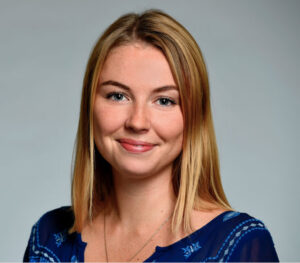Takeaway
I no longer think of my long commute as “wasted” time. Spending it reflecting on the lives of my patients has reignited my passion for medicine.

Lifelong learning in clinical excellence | October 5, 2022 | 2 min read
By Margot Kelly-Hedrick, MD, University of Washington
During my clinical year of medical school, I participated in a longitudinal program where I was based primarily in outpatient clinics. I’d drive twenty, thirty, sometimes forty minutes to and from different clinics. At the start of the year, I whined about my time wasted driving. I lost an hour of my day just being in the car! Time is a hot commodity in medical school. I often felt dizzy with the things competing for my limited time. To cope—like so many of my classmates—I learned to scrutinize my deadlines and schedule my waking hours down to the workouts and “chill” time.
But living this way focused all my attention on the immediate future: the next block of scheduled time or item on the to-do list. My car rides to and from clinic prevented me from obsessing over what came next or instinctively checking my phone or email. At first, this made me itch and squirm. Slowly I learned to see the drive as an opportunity. My thoughts started loud and chaotic, but as I sped by the pines and spruce lining the highway, my thoughts slowed.
Rather than focusing on the immediate future, I reflected on my day in clinic. I tried to remember each patients’ face and name from the appointments that day. I cherished the moments when I saw beyond the patient and their problem list, and glimpsed pieces of their life. Their humanness. An older woman who broke down about her family members lost during the pandemic who then cracked a watery smile as she recounted memories of them. I celebrated those small wins. The woman who confided in me she was thinking of going vegan and I introduced her to tempeh, filling her after visit summary with some of my secret recipes. These encounters seemed important to hold onto. As I drove, I’d whisper to myself don’t forget these moments. They are why you’re here.
I’m doing my best to let go of the idea that the next stage of training, career, or life will be the one where I get to slow down. The time will never appear magically, it has to be created. It can happen in small bits and pieces over the course of a day or week, during a commute, or on evening walks. I try to bring this mindfulness to other parts of my day—when I water my plants or unload the dishwasher.
This outlook is in part driven by my commutes during the past year. I realized I had a whole hour each day to just be in the car. To sit with myself and notice the deep blue sky turning dusky and the maple trees aflame in the evening light.
This piece expresses the views solely of the author. It does not necessarily represent the views of any organization, including Johns Hopkins Medicine.

